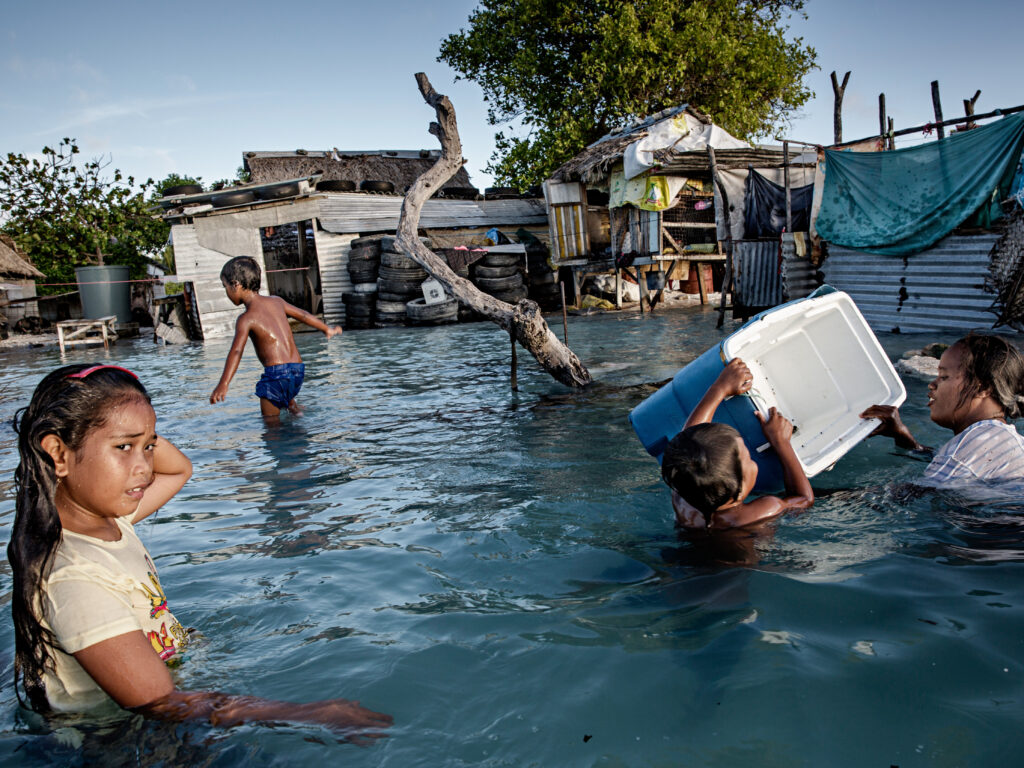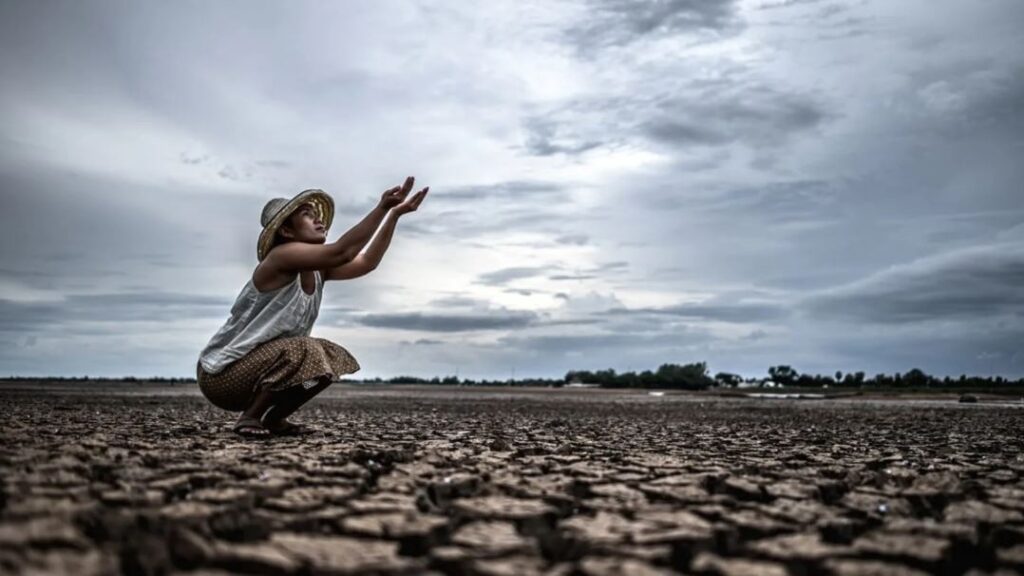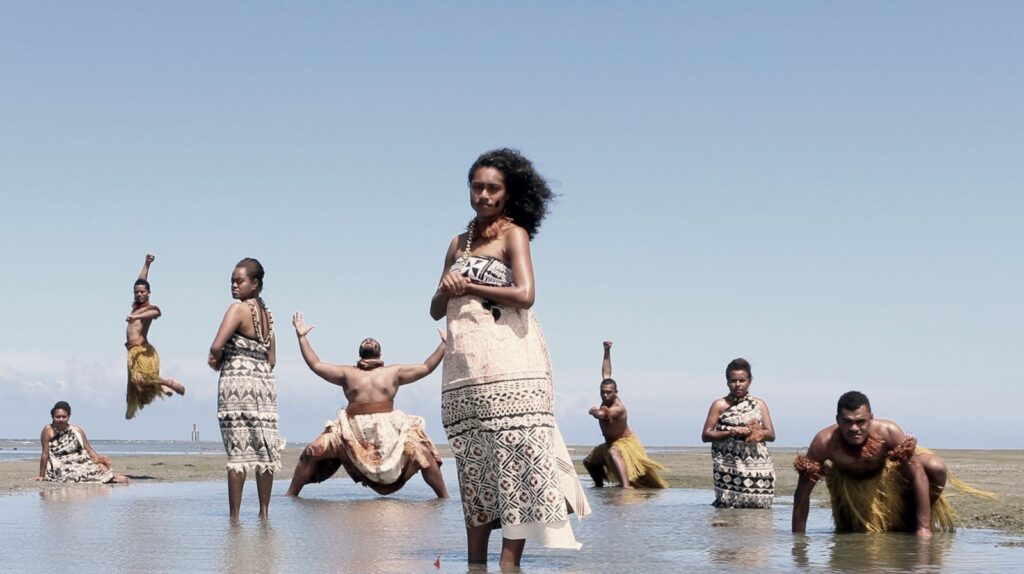As we neared the end of 2020 with great hopes for better times in 2021, we reflected not only on a year marked by a global pandemic, but also the fifth anniversary of the signing of the Paris Agreement on climate change. At the time the Paris Agreement was signed, life was very different. Barack Obama was the President of the United States and it was assumed that the US and major developed economies would lead the charge in responding to the changing global climate. Yet leadership in climate negotiations and climate action has come from places where it was least expected.
Our recent work looked at the role of Pacific Island women at the UNFCCC in making the Paris Agreement. Climate diplomacy is an international arena of high stakes – negotiations not only have environmental implications, but also have potential major economic and security impacts – and this is particularly true for the Pacific. Yet across the Pacific women tend to be under-represented in decision making, particularly in national level politics. Add to this that in global diplomacy, women tend to have marginalised roles in areas of low stakes or less prestige, rather than roles that have significant economic and security claims and responsibilities, and negotiation forums have been largely designed and developed by men. Based on this we might expect that Pacific women might be poorly represented in climate negotiations, yet we found that Pacific women have been integral to capturing global interest in climate change.

In Kiribati, villages such as Eita have succumbed to flooding from the sea.
Dame Meg Taylor, who finishes up this month as Secretary General of the Pacific Island Forum, has long been the face of Pacific climate diplomacy. Dame Meg Taylor has worked tirelessly to maintain focus on climate change, rather than COVID-19, as the biggest threat facing humanity. Hilda Heine, the first woman to become a Head of State in the Pacific Islands region has been a staunch advocate for global climate action. In the activism space, to name only one among many examples, Kathy Jetnil-Kijiner is well-known for her poetry which has captured the world’s attention and raised awareness of the Pacific’s experiences of climate change.
Women from the Pacific influenced the making of the Paris Agreement as lead national technical negotiators. Even more so, women were influential in building and a reaching the climate consensus in Paris as lead negotiators and coordinators for coalitions. Women from Pacific Island countries have long been strategic and decisive leaders in climate negotiations, yet their stories are relatively unknown. In part, this can be put down to the fact that negotiation work requires collective action and networked rather than individualised forms of leadership. Forming alliances has been a key strategy used by Pacific Island nations to gain power relative to big economies in global negotiations. Women representing the Pacific have been vocal in inter-state coalitions like the Pacific Small Island Developing States (SIDS) group, and the Alliance of Small Island States (AOSIS).
Much of this behind the scenes work undertaken by women lacks recognition. The most visible roles in climate change negotiations – at least to the outside public – are heads of delegations.This is the person that speaks in front of media audiences, or delivers the formal remarks of states within the plenary hall. For the Pacific, heads of delegations tend to be male heads of government or ministers.

Our work aims to give recognition to the women who played key roles in the making of the Paris Agreement. As a few amongst numerous examples, Samoa’s Anne Rasmussen and Tuvalu’s Pepetua Latasi were some of the many women coalition coordinators advocating for ambitious global climate actions. Rensie Panda represented a country not well-known for women’s representation in high level leadership and was a passionate negotiator for Papua New Guinea, AOSIS and the Coalition of Rainforest Nations (CfRN). The seasoned negotiator had over the years built a reputation as a confident and disciplined orator in the negotiations, a journey which was not an easy one. Her biggest challenge, she says, was:
being a young woman negotiating in an area which I think is dominated by men. My biggest challenge was to rise up to this occasion and speak out and earn respect from those in the room.
Linda Siegal and Diane McFadzien brought a wealth of technical and legal experience to the Cook Islands delegation (and have led and trained many women negotiators from the Pacific in recent years). This is underscored by the fact that the composition of the Cook Islands delegations was 90% women. Instrumental in training and coordinating Pacific negotiators has been the Secretariat of the Pacific Regional Environment Programme (SPREP) through the leadership and vision of Dr Netatua Pelesikoti and Tagaloa Cooper. Together with other regional officials in SPREP, like Nanette Woonton they have been committed in promoting and documenting the roles that Pacific women take on in climate change advocacy.
At the making of the Paris Agreement in 2015 the 345 strong delegation representing the 14 Pacific Islands states that negotiated the Paris Agreement had close to equal representation of women and men as delegates. In part, this can be traced back to the strategic work of Marlene Moses, the Nauruan ambassador who led the Alliance of Small Islands States (AOSIS) coalition from 2011 to 2014. Recognising UN rules of state accreditation, Moses strategically selected lawyers from across the Pacific and accredited them under Nauru. These included Ngedikes ‘Olai’ Uludong from Palau, who was the Lead Chief Negotiator and would later become Palau’s Ambassador for Climate Change and to the United Nations; and Malia Talakai from Tonga, who was Deputy Chief Negotiator and would later become a senior UN official.

Representation and action from Pacific Women on climate change is impressive, but let’s not sit back and feel like gender has been ‘done’. Women’s representation in leadership networks is one thing, gender mainstreaming another. The gendered impacts of climate change remain a great concern, particularly in a region where women are under-represented in decision-making, not only at national but also at community levels. COVID-19 showed us that crises exacerbate existing inequalities, such as insecure employment or amplify critical issues that impact on women’s participation in public life, such as partner violence. When we hope for greater leadership in response to crises over 2021, let’s look at the collective leadership that is taking place through alliances and coalitions, and the behind the scenes work that deserves the recognition for creating change. Lagging behind that you might find some of those leaders at the top.
Elise Howard is a Senior Research Fellow and George Carter is a Research Fellow in Geopolitics and Regionalism and are both with the Department of Pacific Affairs at Australian National University.




